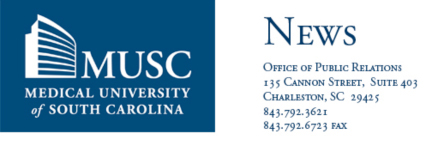
Nov. 9, 2009
CHARLESTON -- MUSC researchers were disappointed to find that a year-long, multimedia educational campaign was not effective in decreasing the high incidence of acquiring antibiotics without a prescription among Latinos in a South Carolina community.
Lead study author Arch Mainous, III, Ph.D., MUSC Family Medicine professor, and his colleagues had suggested in previous studies that self-medication with antibiotics, without a prescription, is common in Latino communities. Unfortunately, when people misuse antibiotics, this practice can create "superbugs" immune to medications meant to make those patients well.
Although most of the 250 adults surveyed in the intervention community had read or heard something on the radio regarding the appropriate use of antibiotics (69 percent), the exposure did not lead to differences in attitudes toward non-prescription antibiotics or having bought them in the last 12 months. Immigrants who previously purchased antibiotics without prescriptions in their home country (where there are no or lax laws restricting antibiotic sales) indicated they were likely to continue this practice in the U.S. Mainous and his colleagues concluded that these results suggest that usual forms of health education may not be sufficient to overcome the strong influence of past behavior. Successful interventions, they offer, may need to incorporate education about the rationale for why antibiotics are regulated in the United States. The full study, A Community Intervention to Decrease Antibiotics Used for Self-Medication Among Latino Adults, is available in the current November-December issue of the Annals of Family Medicine.
About MUSC
Founded in 1824 in Charleston, The Medical University of South Carolina is the oldest medical school in the South. Today, MUSC continues the tradition of excellence in education, research, and patient care. MUSC educates and trains more than 3,000 students and residents, and has nearly 11,000 employees, including 1,500 faculty members. As the largest non-federal employer in Charleston, the university and its affiliates have collective annual budgets in excess of $1.6 billion. MUSC operates a 750-bed medical center, which includes a nationally recognized Children's Hospital and a leading Institute of Psychiatry. For more information on academic information or clinical services, visit www.musc.edu or www.muschealth.com.
#####